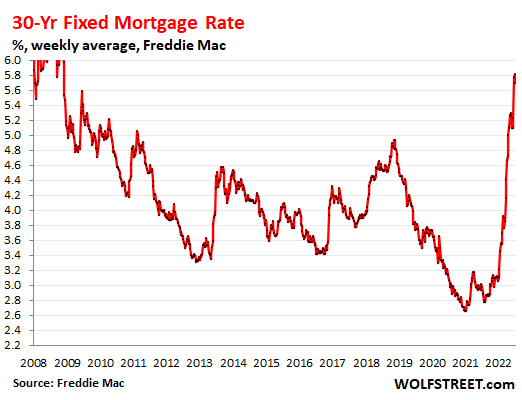Hamilton County judge issues decision in lawsuit against VineBrook

Hamilton County Common Pleas Judge Wende Cross has declined to dismiss the city of Cincinnati’s lawsuit against VineBrook Homes, the largest-single family landlord in the county, over the conditions in some of its homes.
Cross’ decision came Oct. 16.
The Jan. 18 complaint alleged VineBrook and its Cincinnati subsidiaries breached its settlement agreement regarding a 2021 lawsuit, plus claims of public nuisance, civil conspiracy and intentional, repeated violations of both the Ohio Landlord Tenant Act and Cincinnati Municipal Code. Among other requests, the city asked the court to appoint a receiver for VineBrook’s properties.
VineBrook argued the city’s complaint was “overwrought,” that most of its code violations already have been fully resolved and that the city was targeting and portraying the company as an out-of-state, villainous corporate landlord.
“VineBrook is consistently working to maintain the condition of its homes. Nevertheless, property conditions do not remain static, as they would not even for individual owner-occupiers, and VineBrook invests heavily in upkeep and remediation of issues when identified,” the company’s attorneys, Brian Muething and Joseph Lehnert, wrote in their motion to dismiss the case. “The city of Cincinnati can point to only 13 code violations – a mere handful – in its complaint for a portfolio of 964 properties.”
VineBrook also suggested the city was attempting to divert responsibility for issues “that may equally arise from the city’s own failures to generate economic growth, improve schools and support law enforcement to reduce crime.”
The city lacks standing to bring claims against VineBrook, the company argued.
“[T]his is not the first time the city has tried to hale VineBrook into court to shake it down for money,” VineBrook’s attorneys wrote, referring to the 2021 case that was settled.
The city responded that after VineBrook breached that agreement, it launched a larger investigation into the company’s housing portfolio. In 2021, the city alleged VineBrook owed $606,161 in unpaid fines, fees, private lot abatement costs and Greater Cincinnati Water Works charges, with the company settling for 90% of its liabilities, according to the city.
“Results of the city’s renewed investigation were appalling,” the city’s attorneys, Shannon Price and David Laing, wrote. It “revealed a host of predatory and illegal practices, including habitual permit non-compliance, self-help eviction, and serial violation of the Ohio Landlord Tenant Act and Cincinnati Municipal Code. These practices were overt and purposeful, built into the structure of VineBrook’s leases and its communications with tenants and city staff.”
While VineBrook argued the city doesn’t have standing for the complaint, it also argues the individual tenants don’t have the right to go to court either, the city wrote.
“Who can actually hold VineBrook accountable for its violations of state and local law? The answer – in VineBrook’s view – is no one,” the city’s attorneys wrote.
Among other illegal provisions, VineBrook’s leases require tenants to pay to fix water and sewage flooding in basements and garages, pest control and the costs of eviction, the city alleges.
The city suffers injuries and has standing because of increased administrative burden, diminished property tax revenue, damages for permit non-compliance and other reasons, it said.
“It is cheaper for VineBrook to pay an occasional civil citation than it is to comply with state and local law,” the city attorneys wrote. “VineBrook hides behind the shield of its tenants. It claims that its business practices and lease terms, even if illegal, pose no injury to the city – such that individual, low-income tenants should have to take on VineBrook’s billion-dollar corporate structure on their own.”
Dayton-based VineBrook owns more than 5% of all housing stock in some communities, according to the city. In July 2021, the city sued Vinebrook and reached a settlement two months later. As part of that settlement, VineBrook agreed to fix problems at its properties and cease certain eviction practices.
VineBrook has come under scrutiny in recent months. Earlier this year, U.S. Sen. Sherrod Brown, D-Cleveland, introduced legislation aimed at it and other companies by seeking to slash tax breaks they employ.
In December 2022, VineBrook released results of a study performed by HR&A Advisors Inc. that said VineBrook is “not driving the rapid rise in rents or the declining homeownership rate in Hamilton County.” With 3,000 single-family homes, it is the largest owner of single-family homes Hamilton County.
A VineBrook spokesman noted the decision was preliminary.
The decision “does not validate any of the allegations made against VineBrook. We now look forward to focusing on the merits of the case and full consideration of the facts. VineBrook remains confident in its conduct and is committed to providing its residents and the city of Cincinnati with safe, functional and affordable single-family rental homes,” according to the company statement.
Mayor Aftab Pureval hailed the ruling.
“We have been crystal clear that bad-acting investors who prey on tenants will be held accountable,” Pureval said in a statement. “If you are neglecting your property, harming your tenants, and violating their rights, we will come for you.”


